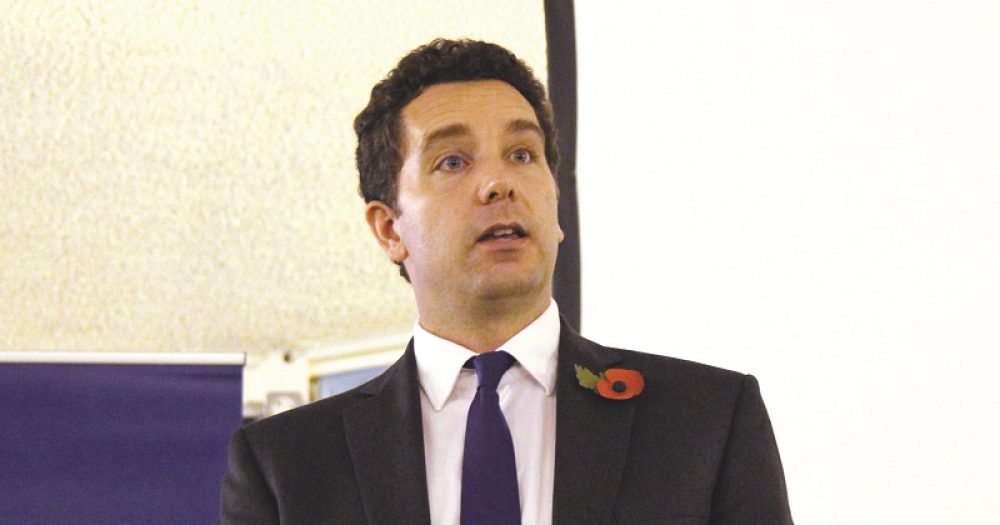Ministers have suggested that sex and relationships education could be made statutory in schools through upcoming legislation due early next year.
Edward Timpson, the children’s minister, told MPs yesterday that officials would be ordered to “accelerate” work on proposals for changing sex education so they can be circulated in the near future.
I will ask officials to accelerate their work
Timpson was speaking during a debate on the government’s children and social work bill, which campaigners criticised for failing to include laws compelling the teaching of sex and relationships education in all schools.
His comments suggest new rules on the issue could be added to the bill as it makes its way through the House of Commons.
The speed-up of plans follows an unprecedented intervention by five parliamentary committees, who last week demanded changes in sex education after the women and equalities committee published worrying findings about sexual harassment in schools.
Local authority-maintained schools must teach elements of sex and relationships education as part of the science curriculum for all pupils over the age of 11, but academies do not have to follow the curriculum. Campaigners want the rules extended to cover all school-age children at all institutions.
In parliament, the minister praised the “powerful” speeches of the committee chairs, and said he “recognised the importance” of SRE.
“This matter is a priority for the secretary of state, so I have already asked officials to advise me further on it, but I will ask them to accelerate that work so that I can report on our conclusions at a later point in the bill’s passage, when everyone in the house will be able to look at them and have their say.”
Great news from minister – he's Heard the call to go further on #SRE and it is a priority and will report back to the house later in debate
— Maria_Miller (@MariaMillerUK) December 5, 2016
Maria Miller, chair of the women and equalities committee, who argued earlier in the debate that the bill “must make sex and relationships education compulsory” if it is to achieve its aim of promoting welfare for children, tweeted that Timpson’s response was “great news”.
Labour MP Stella Creasy also indicated she would try to amend the bill to include sex and relationships education if the government fails to act.
Minister not ruling out putting #SRE into safeguarding in #candswbill …but not ruling it in either- so on I go to table proposals …😬
— stellacreasy (@stellacreasy) December 5, 2016
Campaigners have been hopeful of action on sex education and PSHE since Greening told the education committee in July she was willing to look again at their status.
Her predecessor Nicky Morgan has since said she considered making the subjects compulsory in all schools during her two years in the job, and that she would back laws extending the requirement to academies.
A separate bid from the Green Party MP Caroline Lucas to make the teaching of PSHE compulsory is due to be heard again in parliament in January.








How much of the delay in introducing compulsory sex education is caused by reluctance of politicians to upset religious groups that have a large influence on English schools provision?
If the state demands something is taught for the good of society as a whole, and this is against religious teaching, which side triumphs? Which side should triumph?
Many religious groups are beginning to change their stance on SRE. Hopefully any reluctance is based on out-dated ideas of where public opinion is and will change.